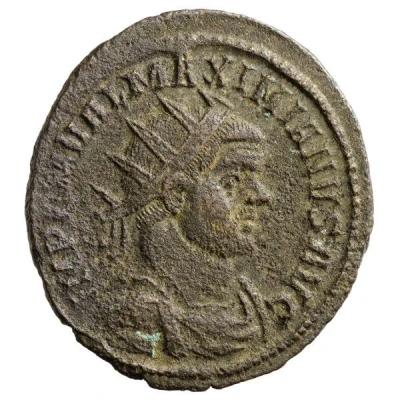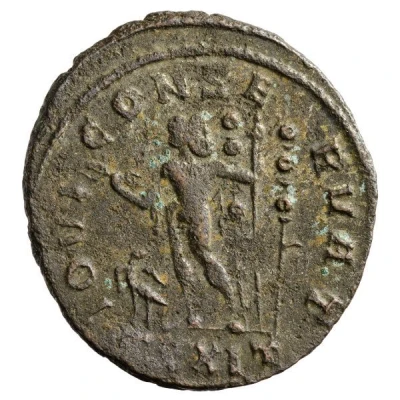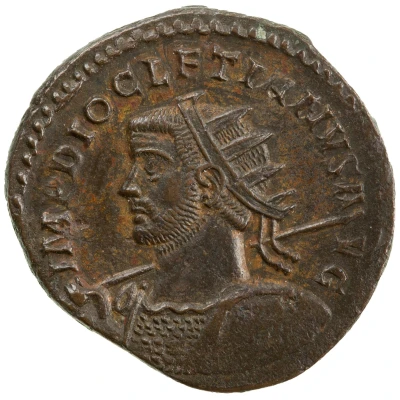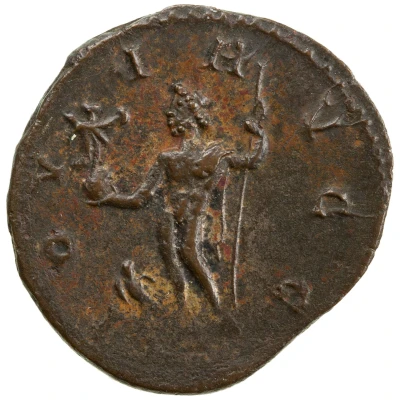


© Münzkabinett der Universität Göttingen (CC BY-NC 4.0 DE)
Antoninianus - Maximianus IOVI CONSERVAT; Jupiter
| Silver | 3.2 g | 23 mm |
| Issuer | Rome › Roman Empire (27 BC - 395 AD) |
|---|---|
| Emperor | Maximian Herculius (Marcus Aurelius Valerius Maximianus) (286-305) Maximian Herculius (Marcus Aurelius Valerius Maximianus) (286-305) |
| Type | Standard circulation coin |
| Years | 290-291 |
| Value | Antoninianus (1) |
| Currency | Antoninianus, Reform of Caracalla (AD 215 – 301) |
| Composition | Silver |
| Weight | 3.2 g |
| Diameter | 23 mm |
| Shape | Round (irregular) |
| Technique | Hammered |
| Demonetized | Yes |
| Updated | 2024-10-05 |
| Numista | N#306566 |
|---|---|
| Rarity index | 100% |
Reverse
Jupiter, standing left, head right, holding thunderbolt in right hand and sceptre in left hand; at foot, eagle; behind, two ensigns.
Script: Latin
Lettering:
IOVI CONSERVAT
-/-//SXXIT
Translation:
Iovi Conservatori.
To Jupiter the Protector.
Comment
Mass varies: 2.575–3.888 g;Diameter varies: 22.58–23.79 mm;
Example of this type:
Münzkabinett der Universität Göttingen
Source:
Online Coins of the Roman Empire (OCRE)
Interesting fact
The Antoninianus - Maximianus coin was issued during a time of great economic and political turmoil in the Roman Empire. The coin's silver content was actually decreased during this period, which was a common practice during times of economic stress, as the government tried to stretch its resources further. Despite this, the coin still features a beautiful image of Jupiter, the Roman god of thunder, on one side, and the emperor Maximianus on the other. This coin is a fascinating example of how the Roman Empire's currency evolved over time, reflecting the empire's changing economic and political circumstances.

